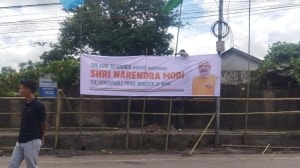At 18, meet comes of age
Two years ago, Prime Minister A.B. Vajpayee remarked at the SAARC summit inaugural ceremony this morning, the organisation was 16 years old ...

Two years ago, Prime Minister A.B. Vajpayee remarked at the SAARC summit inaugural ceremony this morning, the organisation was 16 years old and in the throes of adolescence.
Today as the leaders of all seven states meet in Pakistan, he added, it’s become an adult. Deciding on a South Asian Free Trade Area, a Social Charter as well as an additional protocol on terrorism — issues that would have become full-blown controversies for one reason or another even a year ago.
Significantly, even as India and Pakistan consume the limelight in Islamabad and even threaten to convert the rest of SAARC into a big yawn, it is nations like Bhutan and Sri Lanka that are claiming a public stake in its proceedings. Sri Lankan President Chandrika Kumaratunga and Bhutanese Prime Minister Jigme Thinley proceeded to scold the rest of SAARC for not heeding the warning lights on regional poverty, the means to alleviate it (such as trade) as well as the dangers of terrorism.
Nepalese PM Surya Bahadur Thapa dwelt considerably on the ‘‘wrath of terrorism’’, which ‘‘the President of Pakistan fortunately (recently) survived’’. It was only Bangladesh PM Khaleda Zia who continued her off-key tirade against economic liberalisation in the name of SAFTA, pointing out that ‘‘trade promotion critically calls for reducing tariffs, dismantling non-tariff barriers and impediments of an institutional and attitudinal nature affecting exports from smaller to larger SAARC countries. trade liberalisation should lead to a win-win situation for all — it needs to be approached with a more open mind,’’ she argued.
Clearly though, if Chandrika mesmerised the audience with her succinctly argued, if somewhat long, argument in favour of SAFTA, ‘‘even though ours is a small and vulnerable economy — it is important to note that globalisation does not mean the continued hegemony of the richer nations imposed upon the poorer ones,’’ it was the Bhutanese Prime Minister who stole the show with his disarmingly frank appraisal of the fight against terror on the borderlands of India. Thinley said he was pleased to point out that although Bhutan’s relatively brief experience with planned development had led to a significant rise in the standard of living, it was ‘‘the nightmare of terrorism’’ with which it had lived for far too long.
‘‘While we take comfort in the failure of the attempts on the life of President Musharraf,’’ Thinley said, ‘‘we cannot but see it as yet another rude reminder of our lack of will to root out the menace of terrorism.’’
‘‘Furthermore, they (extremists) threatened to create misunderstandings and undermine our excellent relations with India,’’ he added.
He went on to explain in some detail about Bhutan’s decision to go to war against the ULFA and other terrorist groups, who had sneaked into Bhutan and established 30 camps along the Assamese border. The camps led to unprovoked attacks on Bhutanese nationals, coercion, loot, murder, extortion, Thinley said.
Photos



- 01
- 02
- 03
- 04
- 05




























